SUMMARY
This is AI generated summarization, which may have errors. For context, always refer to the full article.
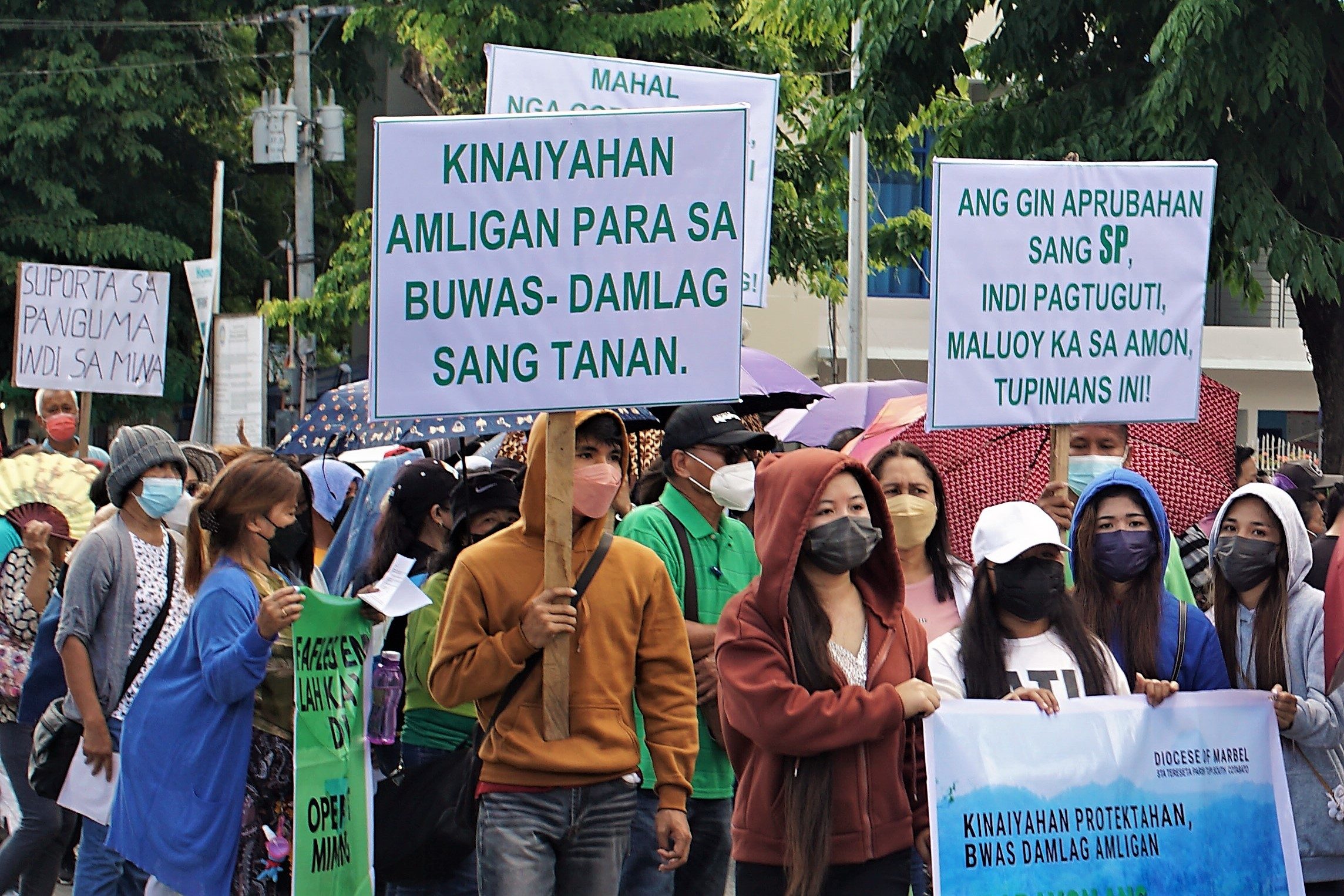
SOUTH COTABATO, Philippines – Protesters who gathered at the South Cotabato provincial capitol in Koronadal City on Thursday, May 19, went home without getting a clear response to their demand to keep the 12-year-old ban on open-pit mining.
On Monday, May 16, the South Cotabato provincial board amended Section 22 of the 2010 Environment Code of the province, lifting the ban on open-pit mining.
The code prevented the multinational Sagittarius Mines Inc. (SMI) to tap a multi-billion copper-gold resource along the boundary that the province shares with Sarangani and Davao del Sur provinces.
Emerging from a dialogue with Marbel Bishop Cerilo Casicas, who led the multi-sector “solidarity march” to the capitol, South Cotabato Governor Reynaldo Tamayo told demonstrators that he has not received a copy of the amendment and, therefore, he cannot act on it yet.
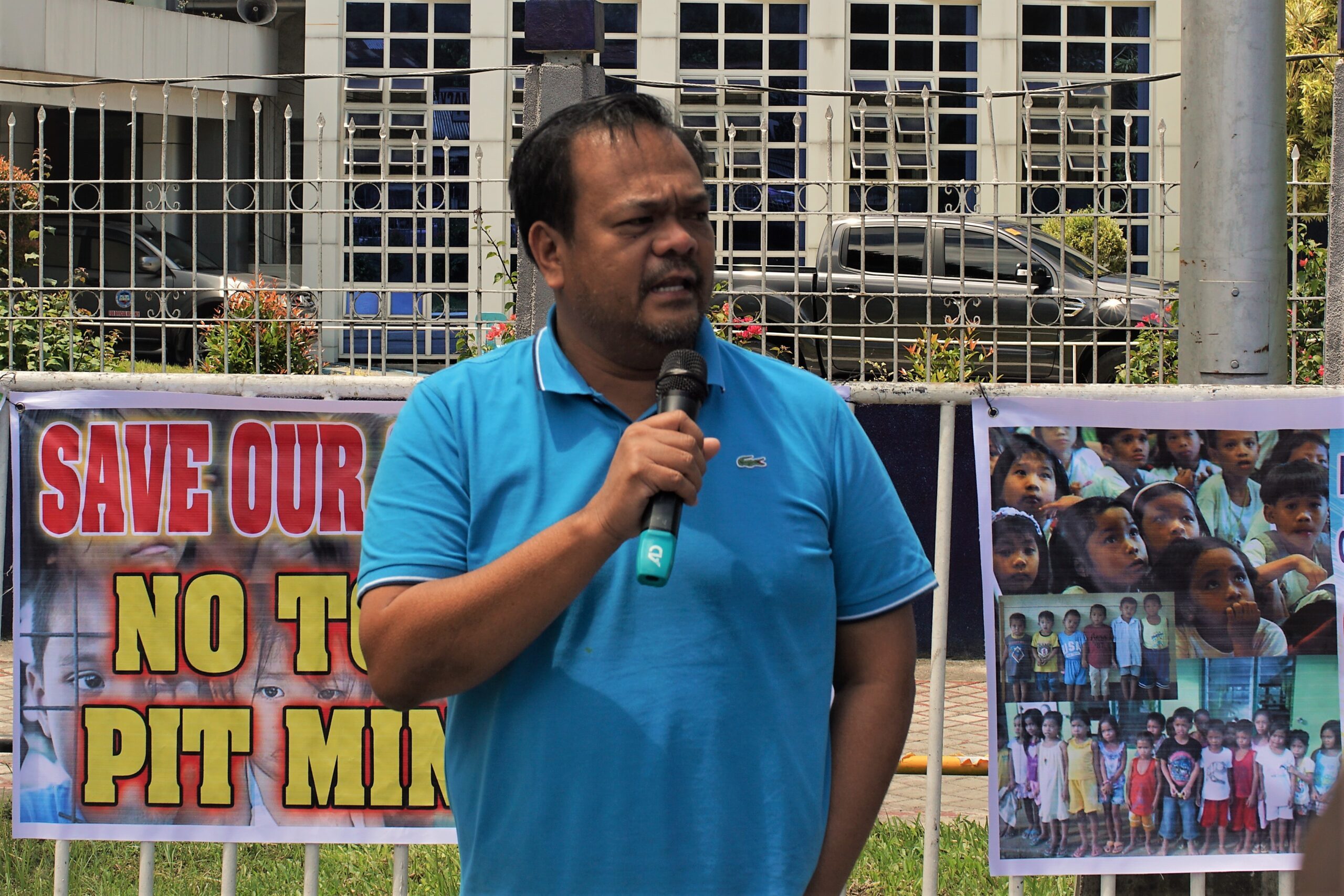
Bishop Casicas told a news conference later that the provincial board withdrew the documents about the amendment from the governor’s office because there was something wrong with it that needed to be revised.
Tamayo assured that he would form a technical working group (TWG) to look into the matter, and help him make “a decision that will be for the best interest of the province and its people.”
“I appeal to you to give me more time on this,” Tamayo told the crowd.
The governor, who received a fresh mandate in the just-held elections, said that once the TWG submits its recommendations, he would call for a “meeting of the minds” among the contending parties – the Catholic Church-led groups, indigenous people, and SMI to discuss what best options to take.
But, in such a controversial situation, lawyers said the governor was left with only two choices: a veto or not to do anything and allow the amendment to pass into law.
By regulation, Tamayo has only 15 days to act upon receipt of the copy of the amendment.
Casicas said the governor told him that the provincial board could override a veto, thus, a need to reinforce it with solid justifications, requiring experts, economy, and other social aspects.
Amid growing criticisms, provincial board member Hilario de Pedro VI, chairman of the provincial board’s environment committee, took to social media to defend what they did and cited the destructive means of illegal miners as among four reasons why they amended the code.
De Pedro also said they needed to amend the code because it was not in line with the 1987 Constitution.
De Pedro and the other board members have claimed to be anti-mining advocates in their campaign sorties.
While mining has its benefits, many known leaders and experts in Mindanao have expressed apprehensions about the possible consequences of open-pit mining in the mountains of Tampakan to the people in the lowlands.
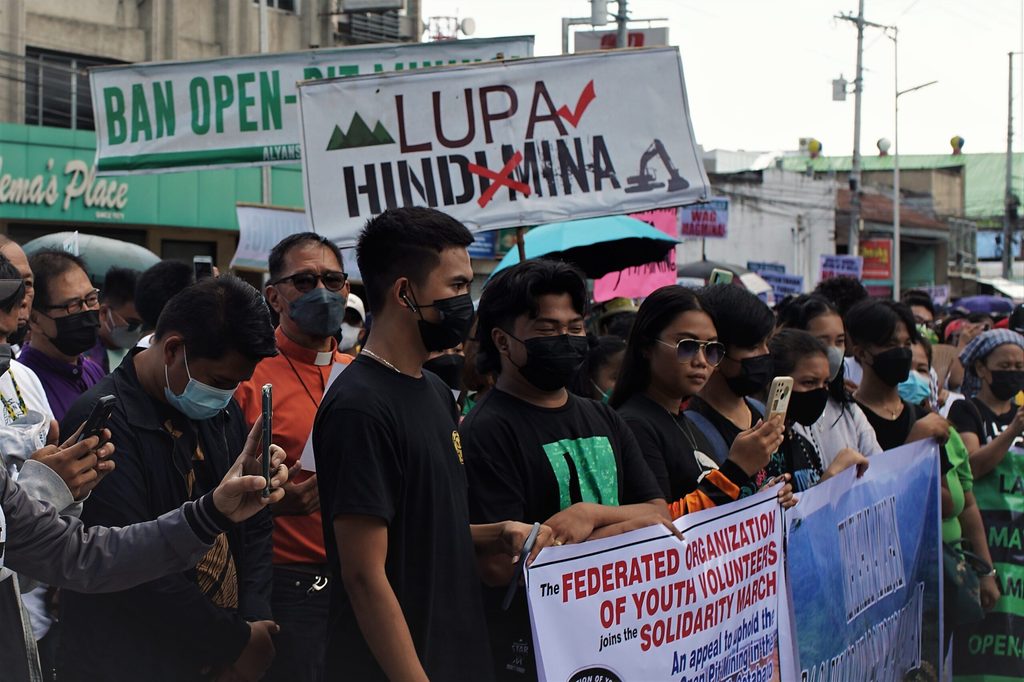
A former chair of the Mindanao Development Authority (MinDA), Emmanuel Piñol, called on officials of South Cotabato to rethink their decision to allow open-pit mining, saying that a more profound study and careful assessment of the environmental risks must be done.
Piñol, who served as agriculture secretary and governor of North Cotabato, said the decision to allow open-pit mining in Tampakan was an environmental issue that transcends political boundaries, and that all affected sectors must be heard.
“We are also affected,” Piñol said on Thursday, May 19, pointing out the proximity of Lake Buluan the mining site.
He said people have to understand that any environmental damage or mining accident caused by the mining operations will affect people living downstream, especially those whose livelihood depends on Lake Buluan, Liguasan Marsh, and the tributaries.
Looking at a map of central Mindanao, one will realize the threat to the fish-rich Buluan Lake and the flora and fauna of Liguasan Marsh in the Bangsamoro Region, he said.
Lawyer Romeo Sucaldito, speaking before protesters at the capitol, described the mining site in Tampakan as a water divide from where various streams and tributaries emanate.
“Open-pit mining will destroy that water divide and deprive bodies of water and communities in the lowlands of their life,” he said.
Similar apprehensions were aired by environmental workers in the Davao region.
Lawyer Mark Peñalver, executive director of Interfacing Development Interventions for Sustainability (IDIS), said open-pit mining in Tampakan would eventually have a drastic effect on the marine ecosystem in the Davao region.
IDIS identified threatened watershed areas in South Cotabato, Sultan Kudarat, Maguindanao, and Davao del Sur, also posing a threat to the ecological integrity of Allah Valley with 102,000 hectares in Sultan Kudarat, the 120,000 hectares watershed of the Padada River in Davao del Sur, and the 122,000 hectares watershed of the Marbel River in the Province of Cotabato.
Piñol said officials of South Cotabato need to be mindful of the effects of the open-pit mining operations on the lives of people in neighboring communities.
“(Making) the decision should not be exclusive to the members of the Sangguniang Panlalawigan of South Cotabato. No amount of money, even hundreds of billions, would justify endangering our people and natural resources,” Piñol said. – Rappler.com
Rommel Rebollido is a Mindanao-based journalist and an awardee of the Aries Rufo Journalism Fellowship.
Add a comment
How does this make you feel?
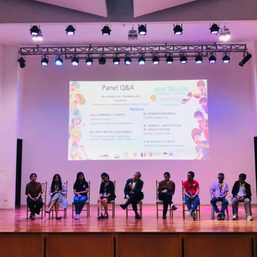

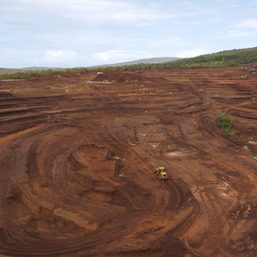


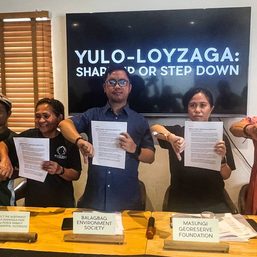
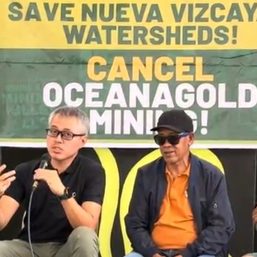
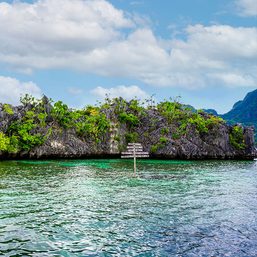
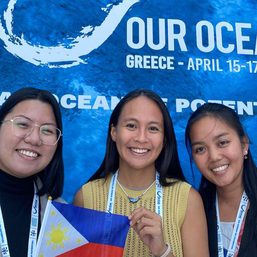
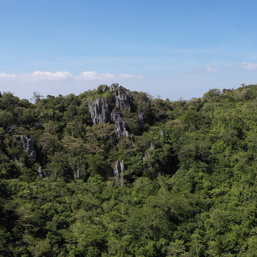
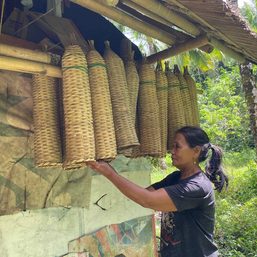
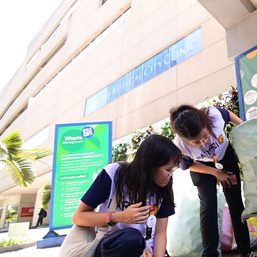
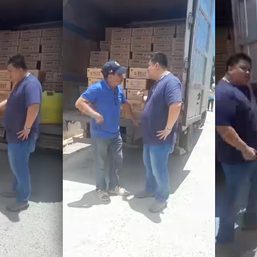
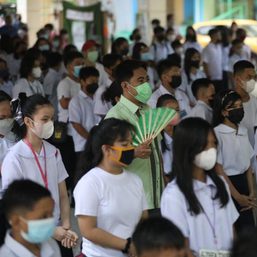
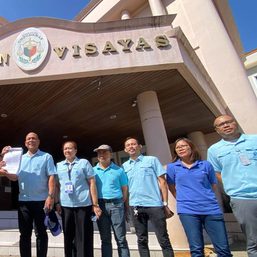
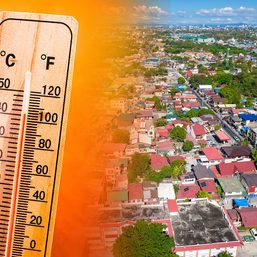

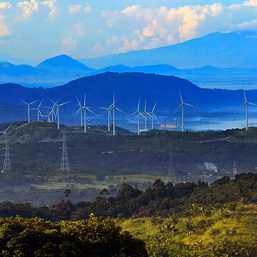
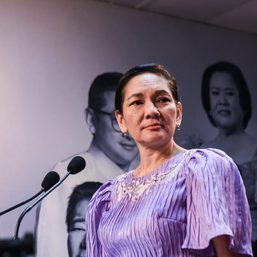

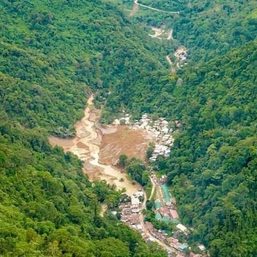
![[ANALYSIS] Trading irregularity in Abra Mining: Why the inaction?](https://www.rappler.com/tachyon/2024/03/tl-mining-trading-irregularities-03082024.jpg?resize=257%2C257&crop_strategy=attention)
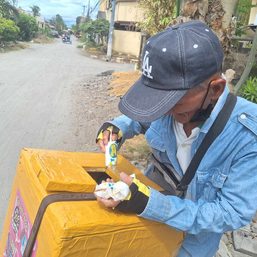
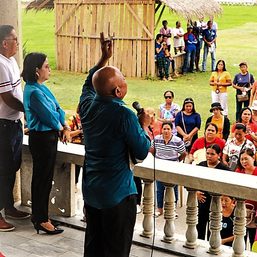
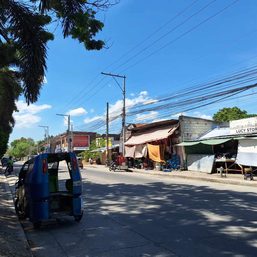
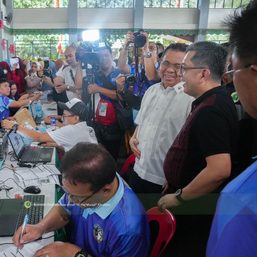
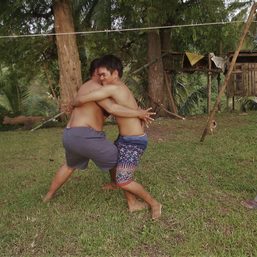
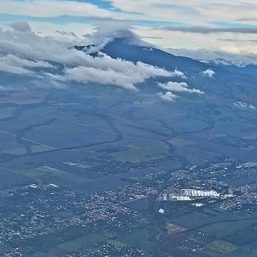
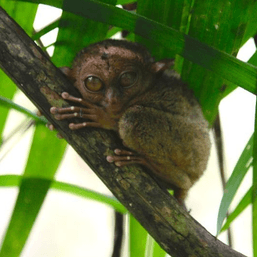

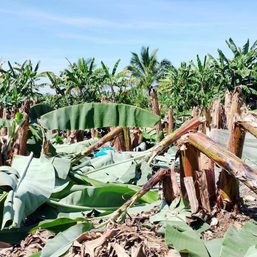
There are no comments yet. Add your comment to start the conversation.